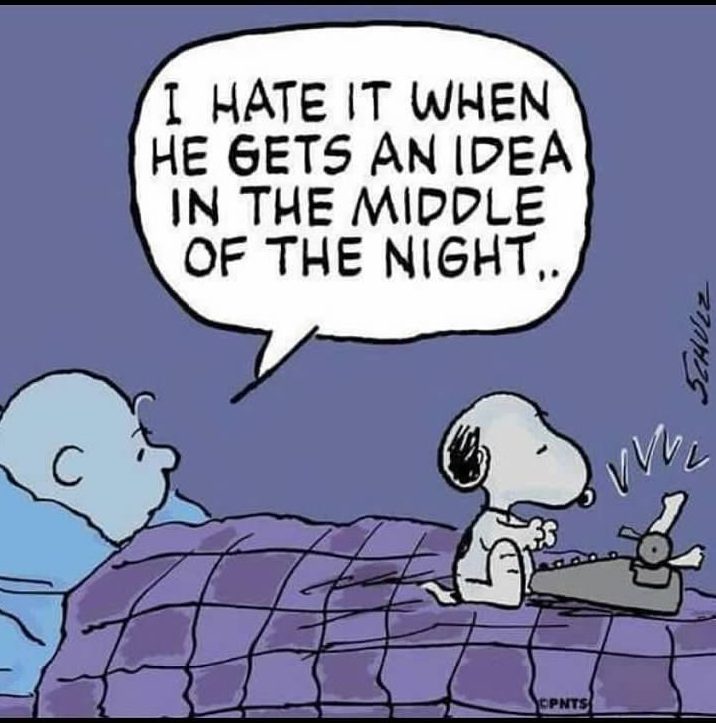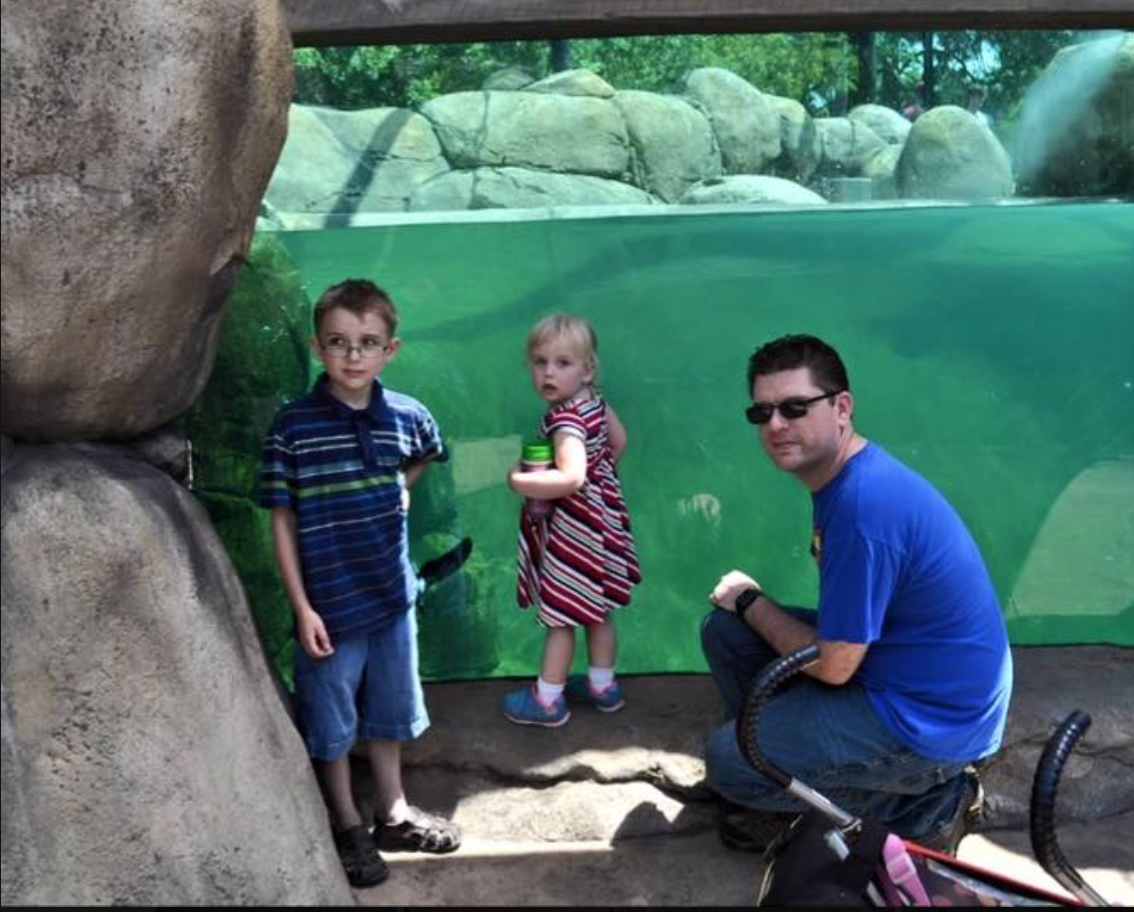
Finding Inspiration
A question writers (and other types of artists) often get is “Where do you find your inspiration?” I honestly get mine from everywhere. My family. My friends. My coworkers. My surroundings. My travels. My experiences. My fears. My doubts. My successes. You get the picture?

As far as inspiration goes, everything you consume is material. Movies you watch, novels you read, music you hear, conversations you overhear, the human emotions and actions you witness. You can create a story for the situations you encounter.
Why is the man screaming at the store clerk? Well, maybe his father just died, and he’s having trouble dealing with it. Why is the woman crying at the bus stop? Well, maybe she just spent the last of her money on medication and doesn’t have enough money left to pay rent. There are endless possibilities with stories because no two authors will tell stories in the same way.
Good writing practice is to find a headline in a newspaper (printed or online) and retell the story with great details about what happened before or after the story. There are also some books with writing prompts that are helpful to get into the habit of writing every day if you need that kind of discipline. *I am not a writer to writes every day. I only write when I am inspired or have a strict deadline (in the case of writing for my day job at a university). I find that forcing myself to write when I am not inspired causes a headache and a lot of junk that I end up cutting out during the editing process.
Another good way to practice writing is to find a song that you love and write a story or poem to go along with it. How does the song make you feel? Who or what is the song about?
I think about things I’ve read and wonder how the stories could be different. I think about situations my friends have experienced and how their stories could be told in different ways. Many of my stories feature characters who have certain traits I’ve taken from friends, family, or myself. It makes my characters feel real to me, and hopefully to my readers. This is especially true with showing the characters’ flaws. In fiction, flaws make the characters feel real to me. It’s the flaws and human emotion conveyed that make me what to jump into the pages (or through the e-reader screen) to hug the character.
There is inspiration all around you if you look for it or let it find you. I keep a notebook beside my bed in case I get an idea in the middle of the night. So many of my ideas just come to me in my dreams, or while considering the “what ifs” of life as I’m trying to fall asleep after I’ve exhausted myself reading or playing word games on my phone.
For more information on the types of written content I produce, read more:
Novels (or short stories):
I love telling stories. I started writing novels and short stories when I was a teenager because there were stories I wanted to read that I couldn’t find anywhere, so I decided to write them myself. I wrote seven novels between the ages of 13 and 15. I have all of the drafts, and they’re crap (Like, really bad).
I was a kid who didn’t really know what I was doing. But I’m so glad I kept them because, despite the fact that the stories are poorly written, the ideas and teenage angst are there—captured at a time when I was a teenager. Those handwritten drafts are incredibly valuable to me as I rewrite those novels as an adult. My advice to all writers is to save everything you write. Even if you think it’s total crap, you never know what you might want to pull from later. Editing can fix just about anything.

I categorize novels into three basic categories: mostly character-driven, mostly plot-driven, or a mixture of both.
My first three published novels definitely concentrate on the characters’ feelings and growth throughout the stories. Caroline grows as a person after experiencing all she does in Caroline’s Lighthouse. Taylor learns to let go of toxic relationships and learns to trust love again in Jordan’s Sister. Kincaid learns life lessons during her 15th summer spent with her grandparents in What I Learned That Summer.
My current novel tentatively titled One Shot, which I hope to release by the end of 2020, is a mix of plot and character-driven since it relies heavily on the suspense of a kidnapped teenager and a man seeking to run for president of the United States.
With plot-driven stories, authors tend to focus more on what happens to the characters in the story rather than how the characters feel about what happens. This can be popular in some genre-fiction such as action, thriller, and even romance. I fully support those types of stories for others, but they’re not the types of stories I wish to write.
Based on my observations, writing styles can vary in these types of stories. First-person narration lends well to character-driven stories and mixtures, while third-person narration works for most story types. I prefer to write in first-person because it feels easier to help readers connect with my main character. I’ll admit that I struggled with writing Jordan’s Sister in third person because it wasn’t my most comfortable style, but it was necessary to make my story work. I briefly toyed with the idea of doing three different first-person narrations in alternating chapters, but that didn’t feel right either. I needed a central narrator to hold the three main characters together. With third-person limited narration, I only delved into the thoughts of three characters in the novel, even though there were multiple characters in the novel. The three perspectives were central to tell Taylor’s story.
You might wonder, which is the right way to write a story? There isn’t a right way. Present tense, past tense, first-person narration, third-person narration…they each have their place, and sometimes it comes down to a personal decision for the author. My advice for writers goes back to reading. Read other works in your genre to see which storytelling styles you prefer. In the end, it’s your story.
Poetry (also song lyrics):
For poetry, I often look internally. I write about my emotions sometimes vaguely and abstractly and other times concretely with specific details. Why? Because sometimes I know exactly how or what I am feeling, and sometimes I don’t. Just like everyone else. I just try to write things in ways that make me feel better or at least feel something. It’s how I want readers to consume my work and feel something. Here are some examples below:
Line from “There”
She wondered how many at fallen in love there, with the rough red bricks scraping at their backs.
This line was actually referring to a real place with rough red bricks, against which the girl in the poem used to sit.
Lines from “A Walk in the Rain”
Trapped within the rose-printed wallpaper,
She stood in silent perfection
In thorns that drew no blood.
In this set of lines, the woman in the poem speaking about her struggle with perfectionism. She’s trapped and hurting, but since she’s not bleeding, no one can see her pain.
In my novel, Jordan’s Sister, I wrote songs as Taylor and Layne because they were musicians and songwriters. I turned to my love of poetry for inspiration to be able to put myself into my characters’ shoes to express their feelings with song lyrics, which are printed in the novel.
The best songs and poems make the listeners and readers feel something. They help the writers express something. The whole process is inspiring.
Blog posts:
I write about things that are in my heart or sitting on my mind. Sometimes it’s updates about my novel-writing, and sometimes I write about controversial things going on in the world. I compose writing advice (like this post) and personal posts to resonate with my readers.
I want each of you to know that it doesn’t matter if I have one reader or one million readers; at the time you are reading my writing, YOU’RE MY MOST IMPORTANT READER.

I want you to laugh and cry with me. I want you to celebrate my successes and learn from my failures. I want you to feel something. Even if you don’t want to comment on my posts, I want you to be changed by them in some way—hopefully for the better.
Thank you for reading.
-Brandi Easterling Collins





2 Comments
Brandy
Yes. Inspiration is everywhere! Love the poetry!
caniscareyou
Thank you for reading, Brandy!